For some of us, the written word is dearer than the spoken. When exactly did I begin to love words and why? Perhaps it was a loneliness I fought against or a suppressed feeling struggling to break out of confinement, a fantasy to write like my favourite writers just as I liked to wield the brush. Perhaps all of these together egged me on to scribble some nonsense out of which meaning sometimes seemed to emerge.
As I try to peep into the past through the veil of an often failing memory, I begin to discern books I craved to read from the school library but were only given to be read on particular days of the week. Often the books I wanted to read fell into my friends’ share and I was left bereft, too shy to ask for an exchange. But the few I received I devoured like a wolf hungry for more. Luckily, my mother was someone who encouraged us to read and collected books for us. I remember reading Assamese comics such as Sofura, Mousak and gradually moving on to Enid Blyton and Nancy Drew series brought by my sister from her friends. There were also a few good collection of books at home, ranging from Jane Austen’s collection of novels, Gulliver’s Travels, The Pickwick Papers, David Copperfield etc. These I read with great ardour but as a child, I could fathom little and only later as a literature student did I realise the larger implications of these works.
Those were the days when satellite television had not yet invaded our homes and we had only one channel to look forward to. Chitrahar and Rangoli were among the few programs we watched secretly, so there was ample time to devote to reading. The great time-waster called the mobile phone wasn’t there to entice us either. At school, I began to scribble poems, my first resulting out of a class assignment. The poem, which had a perfect rhythm, for at that stage poetry for me was all about rhyming, fortunately made its way into the pages of a local daily.
Moving out of school and entering college proved to be crucial in my literary journey. It was when I pursued humanities for my graduation that I began to actually glean real pleasure out of literature. Poetry meant beautiful verses by Keats, Shelley, and Browning among others. It was now that I scribbled some verses of serious note, some of which were published in magazines and local newspapers. Yet, despite the creative urge within, I didn’t dare venturing beyond poetry because of low self-esteem or perhaps a lack of inspiration.
It was during my MA days at the university that the creative ball really got rolling for me. I was fortunate to receive encouragement from my learned teachers. I remember writing an article on Lewis Caroll and his adoration for children which was published in the departmental wall magazine. Participating in the creative writing competitions during the university week and receiving the second and the third prizes in the poetry and short story writing competitions was the defining moment of my literary life. Gradually, I began to traverse the terrains of prose. The literary experiments of writers such as Virginia Woolf and James Joyce began to interest me. Studying the critical theories simultaneously led me to think whether any writer was writing with psychoanalyst, Marxist or any other such leanings in their mind? I would also wonder why we ruin an excellent work by dissecting it to bits by applying some dreary theories. Many such questions remained unanswered.
It is said that grief brings out the best of creativity in us. There was a phase in my life too when a search for some meaning and purpose arose. I was in search of a job. Finding no suitable work, a sense of dejection, combined with moments of solitude and loneliness gripped me. It was during those hours that putting pen to paper seemed like a palliative. Soon, some of the most sensible creative works of my modest oeuvre took shape.
The works of Sylvia Plath, Pablo Neruda, and Emily Dickinson seemed to be inspiring enough, awestruck as I was by the sheer power and magic of words wielded by their pen. A fetish for knowing, understanding and keeping a stock of the most beautiful, powerful words grew in me. This possessiveness for words led me to gorge on anything that I could lay my hands on – from newspaper editorials to books by Arundhati Roy, Gabriel García Márquez and the club of sophisticated (in my parlance) writers. Over time I could get a contractual job and bought my own laptop. And soon I began to type, created my own blog and wrote regularly. I’d finally found a space to harness and shape my thoughts and feelings.
Life took a fortunate turn as I got a regular job. That was when I thought of bringing out my first book of poetry mainly to collate all my writings scattered here and there. I was more at ease now, having found a secure job. As the world turned digital, I continued to read online articles and e-books. I befriended several creative geniuses on social media and got to know and read their works, which provided even more inspiration. Strangely enough, during the Covid pandemic, my literary output was tremendous. Being able to publish my creations in several prestigious online platforms encouraged me to write more.
No doubt, many of my submissions were rejected, too and being rebuffed was hard to accept. In the beginning, a rejection felt as if all my writing was hogwash, or that I lacked a creative spark . But then I came across some outstanding writers who shared their own rejection stories. A dabbler myself, I once read somewhere that a novice needs to make a hundred submissions a year out of which one will surely be selected. So, I gradually came to terms and accepted these non-acceptances. Often I would realise later that in my haste to submit, I’d turned in a shoddy piece. Turndowns began to emerge not as failures but opportunities to learn, polish and write better. I continue to write, for I am still learning and believe I haven’t written my best story or best poem yet. The search for my muse continues; after all,don’t pearls take years to form?
Bio note
Shyamolima Saikia is working as an Assistant Professor in the Dept. of English, Gargaon College, Sivasagar, Assam. Besides editing an anthology titled Poetry Unites: An Anthology of Verse and several other books, she has also published a book of poems titled Palimpsest. Her poems have been published in Borderless Journal, Muse India, Indian Periodical, Virtuoso, Teesta Review, Soul Connection, Yugen Quest Review and anthologies like Antargata, the Kali Project, Paradise On Earth: An International Anthology, Earth, Fire, Water & Wind A Poetry Anthology etc. Her short stories have been published in TMYS Review, SKIN: Flash Fiction First, Volume 2, among others.

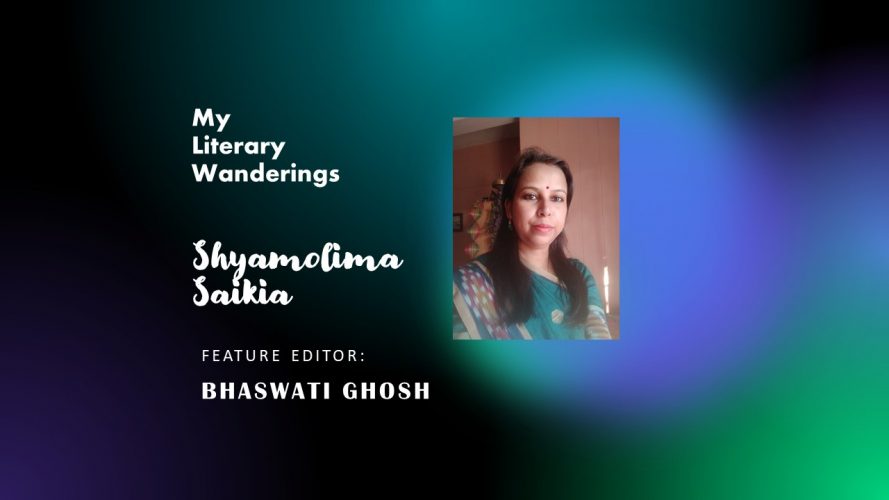

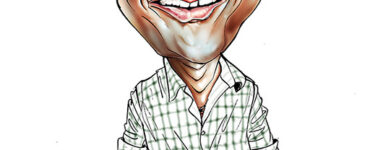
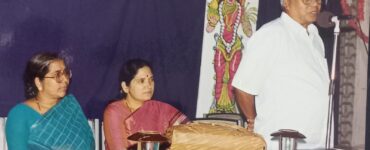
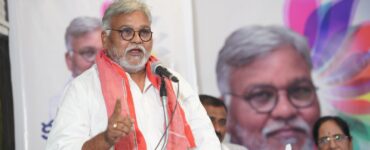
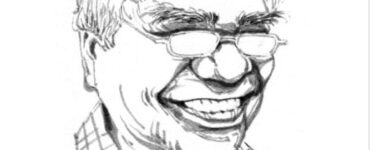
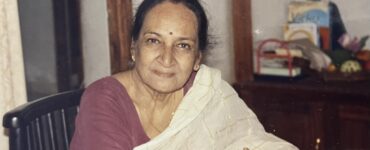

Beautifully written Shyamo ❤
It’s amazing how it resonates with me and inspires me to write more. I feel that I haven’t written enough and still have a long way to reach the stage of perfection. Beautiful writing, Shyamolima Madam! 👍